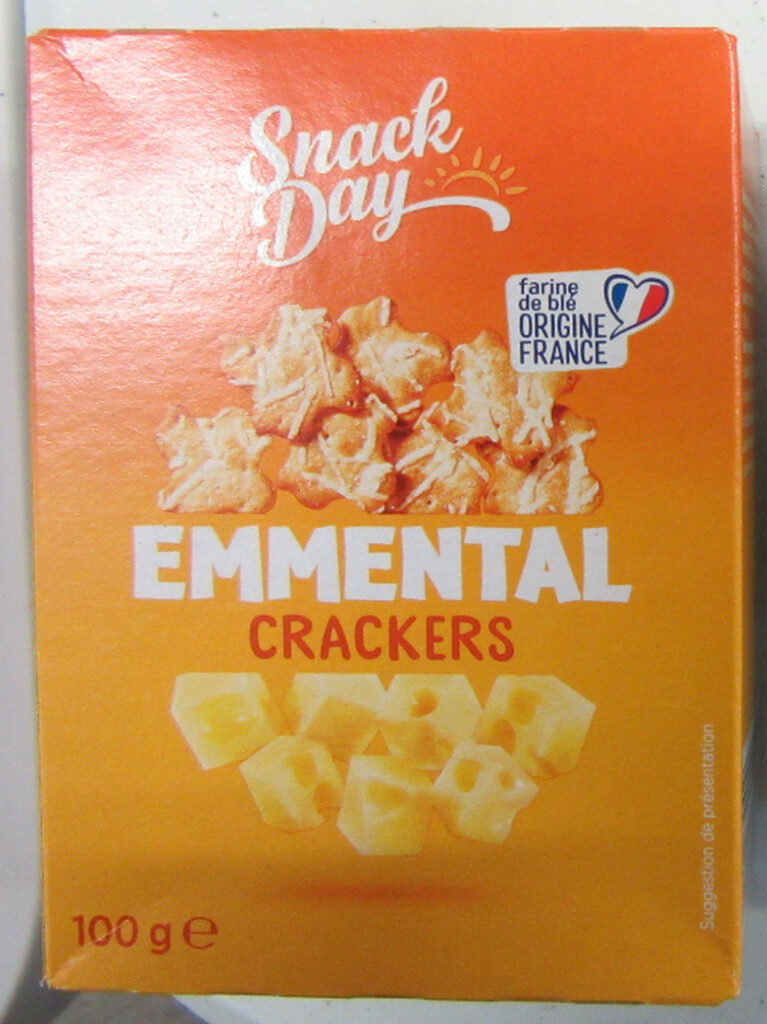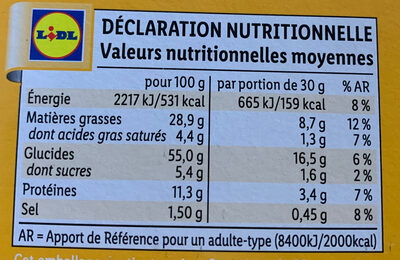Crackers emmenal - Crusti Croc - 100 g
Ambiguous barcode: This product has a Restricted Circulation Number barcode for products within a company. This means that different producers and stores can use the same barcode for different products.
×
This product page is not complete. You can help to complete it by editing it and adding more data from the photos we have, or by taking more photos using the app for Android or iPhone/iPad. Thank you!
×
Barcode: 20408442
Common name: Biscuit crackers à l'emmental
Quantity: 100 g
Packaging: Cardboard, fr:21, fr:Pensez au tri!, fr:Sachet plastique à jeter, fr:Triman, fr:Étui carton à recycler
Brands: Crusti Croc
Categories: Snacks, Salty snacks, Appetizers, Crackers
Labels, certifications, awards:
Green Dot, Made in France, Triman

Manufacturing or processing places: France
Stores: Lidl
Countries where sold: France
Matching with your preferences
Environment
Carbon footprint
Packaging
Transportation
Report a problem
Data sources
Product added on by sebleouf
Last edit of product page on by aleene.
Product page also edited by beniben, derskio, ecoscore-impact-estimator, inf, kiliweb, musarana, openfoodfacts-contributors, packbot, roboto-app, yuka.U1l0Y052VWZvUGtIb3ZJdnBpalI4ZjU3eTY3MmZudXpFTGMySVE9PQ, yuka.WjRjaE1Jc29oZUVGdXNFYW9oamN5OWxFNnE3elh6S1VDK2d2SVE9PQ, yuka.sY2b0xO6T85zoF3NwEKvlhNDS-TBu2nZbzbWiXGontisdK7MbvIqx7LkEKs.










